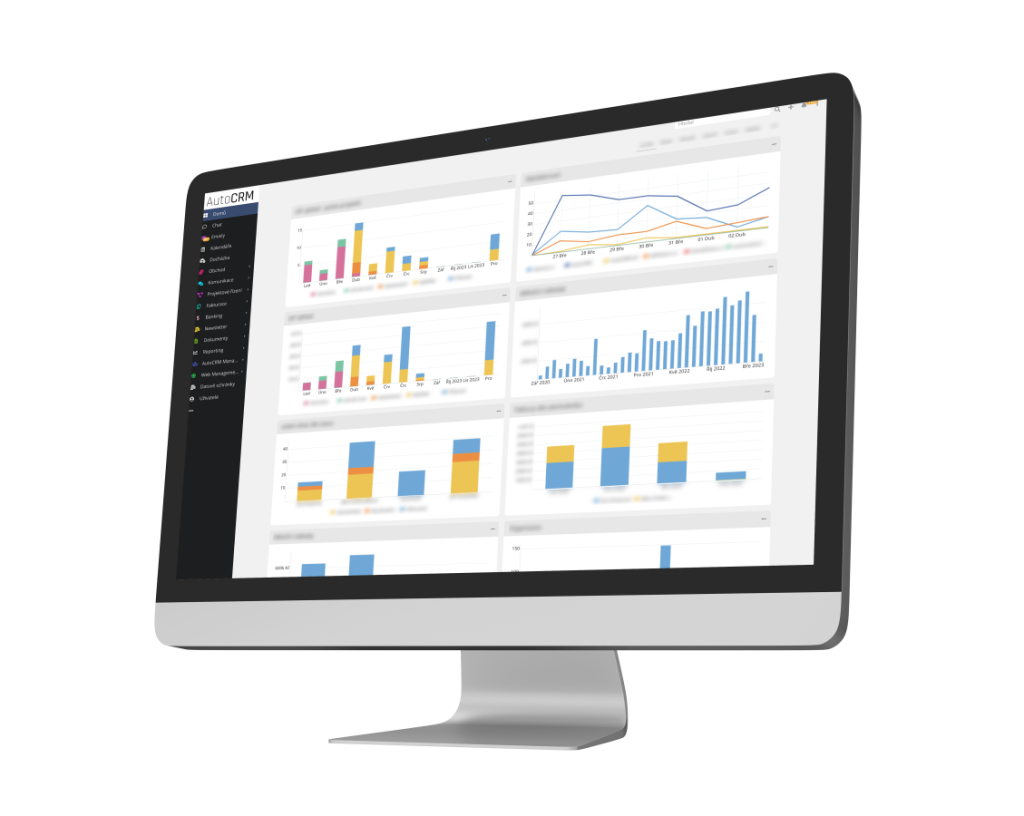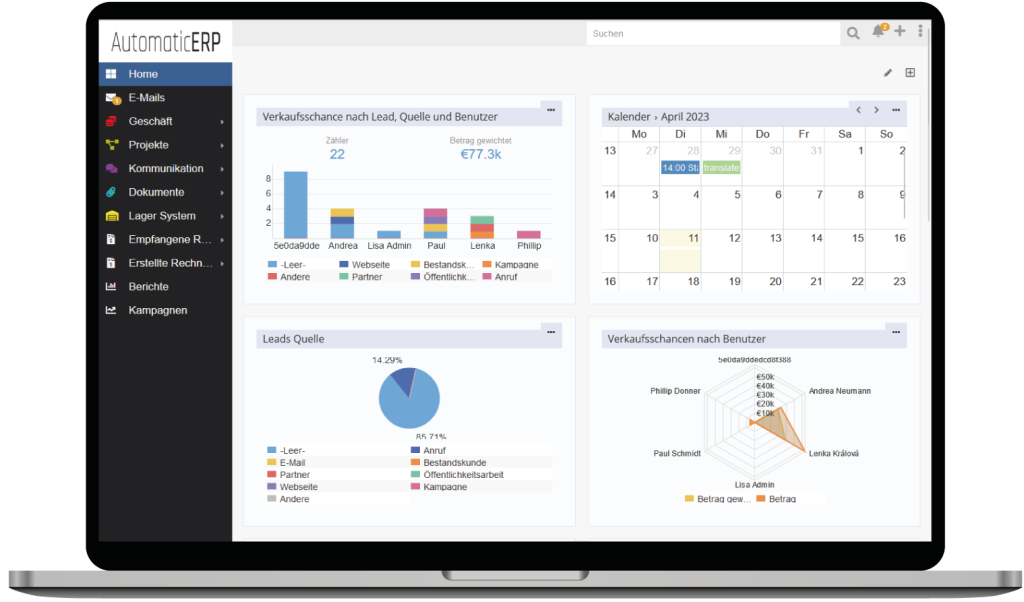A business information system can connect all internal processes within your company. This important step leads to increased efficiency and improved long-term planning, which will ultimately ensure the long-term stability of the company and its ability to generate higher profits. Implementing information systems is a long-term, time- and financially demanding process. Deciding which specific system will be the optimal option for your type of business is not easy.
If you are currently looking for a suitable solution for your new business or want to switch from an existing system to a new one, the information in our article will come in handy. In it you will find a detailed summary of all essential information, thanks to which you will compare your priorities and have an overview of the current offer on the market.
Automation of internal activities represents significant time and financial savings. At the same time, the systems are not intended only for large companies. Modern software can also adapt to the needs of medium and small companies. See for yourself.
Business information system - definition of the term
First, let’s explain what an enterprise information system is. In this context, you may also come across the abbreviation EIS (Enterprise Information System). We are talking about integrated software that enables the collection, processing, analysis, storage and distribution of data within the company. It can also be integrated with other trading systems.
EIS is an irreplaceable management tool for modern companies that want to expand, seek to increase profits or stand out from the competition in their field. It significantly facilitates the management and administration of business processes and at the same time provides support that enables effective decisions to be made.
Types of information business systems
An EIS usually consists of software components that specialize in specific aspects of a business and that are interconnected to form a complete enterprise information base.
Includes:
- ERP systems (Enterprise Resource Planning) – a complex enterprise information system ERP is used to connect and manage activities in various business sectors, it manages, for example: finance, production, sales or marketing, etc. In practice, many people confuse the ERP system with CRM. However, these are not synonymous terms. Each of these software has a different specialization.
- CRM systems (Customer Relationship Management) – focus on managing and optimizing customer relationships (from recruitment to customer support).
- SCM systems (Supply Chain Management) – specialize in managing the supply chain from purchase to distribution of goods.
- HRM systems (Human Resources Management) – deal with the management of human resources within the company from the recruitment of new employees to their departure.
- BI systems (Business Intelligence) – analyze and report data and information in order to facilitate and improve decision-making processes.
- E-commerce systems – manage electronic commerce. This system includes the online sale of services and goods to the management and administration of orders and payments.
- EAM systems (Enterprise Asset Management) – deal with the administration and management of assets (equipment, machines, vehicles, etc.).
- PLM systems (Product Lifecycle Management) – They focus on the life cycle of a product from design, through production and service to its disposal.
You can implement EIS on its own or as a combination of several solutions from different vendors. Focus on having the software designed and implemented with your requirements in mind. Correct implementation ensures that the given program will perform its function perfectly.
How can you use enterprise information systems to benefit your business?
Individual types of EIS ensure effective administration and management of various areas of business. The smooth running of the company naturally leads to the streamlining of internal processes, increased productivity and competitiveness.
Enterprise information systems ERP specifically ensure:
- managing, controlling and managing inventory,
- project management,
- sales, marketing and finance management,
- human resource management, etc.
You can expand ERP and CRM systems gradually according to your current requirements. Our experienced team will help you build a solution tailored to your business.
5 main benefits of using a business information system in conjunction with CRM
Specifically, we are talking about the connection of ERP with the CRM system. As explained above, these are two different software that are used in business to improve efficiency and increase productivity.

How will this connection affect the functioning of your company?
- Data integration – you can easily connect the two software. This makes it possible to obtain and analyze useful data from both programs. Thanks to this, you can better understand the current needs of customers and can thus adapt the offered products and services to them.
- Cost reduction – the systems will ensure better use of resources, which in the long run will lead to a reduction in overall costs. Through CRM, you can track the history of interactions with customers and, based on it, streamline internal processes and adjust production and service offerings. Costs can also be reduced by efficient planning of meetings and tasks, which is ensured by a shared calendar within the CRM system.
- Better customer service – thanks to the connection of ERP and CRM, you can provide your clients with better customer service.
- Streamlining your marketing campaign – if you have a thorough understanding of your clients’ buying behavior and needs, you can better target your marketing campaign. A well-designed campaign is more profitable financially and will help you acquire new customers.
- Transparency – you will be in control of all internal activities. This leads to improved management of various activities, thereby reducing costs, increasing profits and, ultimately, higher customer satisfaction and loyalty.
Try the top Czech OpenSource CRM system for yourself. We offer a high-quality demo version for free.
What factors should you focus on when choosing a business information system?
If you want everything to go smoothly and the selected EIS to perform its function without any problems, take your time and take into account all the essential criteria that will help you choose the optimal option.
Choose an enterprise information system for small businesses as carefully and with deliberation as representatives of large organizations.
- Functionality – The EIS must be designed for the specific needs of the business. Therefore, make sure that the program in question is configurable and flexible enough to help you grow. Otherwise, it will only be a nuisance.
- Security – the system will manage and store sensitive internal information and data. Therefore, it must have a high level of security and security mechanisms to prevent data loss or misuse (user authentication, encryption, etc.).
- Flexibility – the optimal software adapts to your current situation. So make sure it allows for modifications, updates and extensions.
- Integration – the chosen system should be easy to integrate with existing programs and applications (eg with a human resource management system or inventory management system, etc.).
- Price – affordability should not come at the expense of quality and functionality. Modifications, implementation, management, maintenance and development of the EIS must be included in the total costs.


